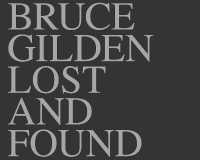- ホーム
- > 洋書
- > 英文書
- > Literary Criticism
Full Description
How do writers and artists represent the climate catastrophe so that their works stir audiences to political action or at least raise their environmental awareness without, however, appearing didactic? Storying the Ecocatastrophe attempts to answer this question while interrogating the potential of narrative to become a viable political force. The collection of essays achieves this by examining the representational strategies and ideological goals of contemporary cultural productions about climate change. These productions have been created across different genres, such as the traditional novel, dance performance, solarpunk, economic report, collage, and space opera, as well as across different languages and cultures. The volume's twelve chapters demonstrate that rising temperatures, erratic weather, extinction of species, depletion of resources, and coastal erosion and flooding are an effect of our abusive relationship with nature. They also show that our use of nuclear power, extraction of natural resources and extensive farming, including heavy reliance on pesticides, intersect with intrahuman violence, as fleshed out by heteropatriarchy, racism, (neo)colonialism, and capitalism. They finally argue that human activity has indirectly contributed to other contemporary crises, namely the migrant crisis and the spread of contagious diseases such as Covid-19.
Chapter 8 of this book is freely available as a downloadable Open Access PDF at http://www.taylorfrancis.com under a Creative Commons Attribution-Non Commercial-No Derivatives (CC BY-NC-ND) 4.0 license.
Contents
Notes on contributors
Introduction: storying the ecocatastrophe: from doomand-gloom scenarios to messages of hope
HELENA DUFFY
1 Daily life and global crisis: human experience and narrative fiction in the age of the Anthropocene
MARKKU LEHTIMÄKI
2 Feelings of hope and helplessness in Knut Faldbakken's and Maja Lunde's climate change novels: an econarratological reading
GEORGIANA BOZÎNTAN
3 Narrating the economic value of nature in the Anthropocene
XIN LIU
4 Building a new world on the ruins of Helsinki: critical utopia in Annika Luther's The City of the Homeless
KATARINA LEPPÄNEN
5 Extreme climate and the anthropocentric conception of agency in cinematic ocean planets
FAEZE REZAII
6 The radiant future or the end of history? The (eco)politics of Antoine Volodine's novel Radiant Terminus
HELENA DUFFY
7 The nuclear disaster as metaphor for the impending ecocatastrophe in anticipatory fiction from Luxembourg
SÉBASTIAN THILTGES
8 Speculating on ecological futures: narratives of hope and multispecies justice in contemporary ecofiction
ELIZABETH TAVELLA
9 Nature and masculinity in Barbara Kingsolver's Prodigal Summer: writing an ethical shift in environmental perception
CHLOÉ BOUR--LANG
10 Backward looking is necessarily organic: female artists revisit traumatic pasts and reimagine present and future alliances
KATARZYNA BOJARSKA
11 'Ruined and wrecked!': Annie Proulx confronts the ecocatastrophe
HANNAH JOCELYN
12 Congolese Anthropocenes, wounds of extraction, arts of resistance: transcultural materialism in Fiston Mujila's Tram 83 and Sammy Baloji's The Beautiful Time
SPRING ULMER
Afterword: one must cultivate one's own garden
HELENA DUFFY
Index







